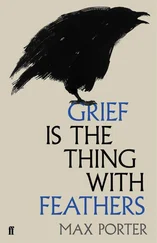“Oh my boy,” he said. “Your troubles are almost over. You are very near the road home. In yonder clearing squats an officer who can send you on your way.” The man in white raised a bare arm and pointed. Tomo got up and ran, not so much because he believed the fever-vision, but because he wanted to get away. Sure enough, there was a figure in the clearing, squatting next to his horse with his pants down.
Tomo’s half-spoken friendly greeting turned to a howl of rage when he saw the man in the clearing was a Rebel, and a general for that matter — his stars shone very clearly in the bright moonlight. Tomo brought his gun up as he ran, but when he fired, he missed. As he neared the General, he flipped the rifle and caught it by the barrel, lifting it above his head, ready to deliver a crushing blow. The General raised his pistol and shot twice before Tomo could reach him. The first bullet went wide, but the second passed into Tomo’s left eye, and killed him dead. Tomo fell down in the cool grass, and his fever began very slowly to depart from him. The General came over on his knees to better see his assailant. Already, there was noise in the trees. The General’s staff was coming to look for him — his camp was not very far away.
When the General saw it was a little boy he had killed, he pounded his hand against his head and tore out a piece of his hair, cursing the Yankees that they should send children against him, and, because he happened also to be a priest and a bishop, he prayed gently and sincerely over the boy’s body, pleading with God to please, please give this little one a home in Heaven.
PART ONE. EVERY NIGHT FOR A THOUSAND YEARS
Sorrow ([illegible]) grieve sad mourn (I use) mourning mournful melancholy dismal heavy-hearted tears black sobs — ing sighing funeral rites wailing lamenting mute grief eloquent silence bewail bemoan deplore regret deeply loud lament-pitiful loud weeping violent lamentation
anguish wept sore depression pain of mind passionate regret afflicted with grief cast down downcast gloomy serious Sympathy moving compassion tenderness tender-hearted full of pity obscurity partial or total darkness (as the gloom of a forest — gloom of midnight) cloudy cloudiness (cloudiness) of mind mind sunk in gloom soul ((sunk in gloom)/ dejection dejected
[illegible]) shades of night heavy dull-sombre sombre shades sombre(ness) affliction oppress-oppressive oppression prostration humble — humility suffering-silent suffering burdensome Distress — distressing calamity Extreme anguish (either of mind or body) Misery torture harassed weighed down trouble deep affliction plaintive Calamity disaster something that strikes down
— WALT WHITMAN, A collection of vocabulary for “When Lilacs Last in the Dooryard Bloom’d”
WALT DREAMED HIS BROTHER’S DEATH AT FREDERICKSBURG. General Burnside, appearing as an angel at the foot of his bed, announced the tragedy: “The army regrets to inform you that your brother, George Washington Whitman, was shot in the head by a lewd fellow from Charleston.” The general alit on the bedpost and drew his dark wings close about him, as if to console himself. Moonlight limned his strange whiskers and his hair. His voice shook as he went on. “Such a beautiful boy. I held him in my arms while his life bled out. See? His blood made this spot.” He pointed at his breast, where a dark stain in the shape of a bird lay on the blue wool. “I am so very sorry,” the General said, choking and weeping. Tears fell in streams from his eyes, ran over the bed and out the window, where they joined the Rappahannock, which had somehow come north to flow through Brooklyn, bearing the bodies of all the late battle’s dead.
In the morning Walt read the wounded list in the Tribune. There it was: “First Lieutenant G. W. Whitmore.” He knew from George’s letters that there was nobody named Whitmore in the company. He walked through snow to his mother’s house. “I’ll go and find him,” he told her.
Washington, Walt quickly discovered, had become a city of hospitals. He looked in half of them before a cadaverous-looking clerk told him he’d be better off looking at Falmouth, where most of the Fredericksburg wounded still lay in field hospitals. He got himself on a government boat that ran down to the landing at Aquia Creek, and went by railroad to the neighborhood of Falmouth, seeking Fer-rero’s Brigade and the Fifty-first New York, George’s regiment. Walt stood outside a large brick mansion on the banks of the Rappahan-nock, somebody’s splendid residence converted to a hospital, afraid to go in and find his mangled brother. He took a walk around the building, gathering his courage, and found a pile of amputated limbs, arms and legs of varying lengths, all black and blue and rotten in the chill. A thin layer of snow covered some of them. He circled the heap, thinking he must recognize his brother’s hand if he saw it. He closed his eyes and considered the amputation; his brother screaming when he woke from the ether, his brother’s future contracting to something bitter and small.
But George had only gotten a hole in his cheek. A piece of shell pierced his wispy beard and chipped a tooth. He had spit blood and hot metal into his hand, put the shrapnel in his pocket, and later showed it to his worried brother, who burst into tears and clutched him in a bear hug when they were reunited in Captain Francis’s tent, where George sat with his feet propped on a trunk and a cigar stuck in his bandaged face.
“You shouldn’t fret,” said George. “I couldn’t be any healthier than I am. And I’ve been promoted. Now you may call me Captain Whitman.” But Walt could not help fretting, even now that he knew his brother was alive and well. A great, fretting buzz had started up in his head, inspired by the pile of limbs, and the smell of blood in the air, and by ruined Fredericksburg, all broken chimneys and crumbling walls across the river. Walt stayed in George’s tent and, watching him sleep, felt a deep thrilling worry. He wandered around the camp, and as he passed by a fire in an enclosure of evergreen branches piled head high against the wind, he met a soldier. They sat down together by the fire, and the soldier told Walt hideous stories about the death of friends. “He put his head in my lap and whispered goodbye to his mama,” the soldier said. “And then he turned his eyes away from me and he was dead.” Walt put his face in the evergreen wall, smearing his beard with fresh sap, and thought how it smelled like Christmas.
Ten days later, Walt still couldn’t leave. He stood by and watched as George moved out with the healthy troops on Christmas Day, then idled in the deserted campground, watching the interminable caravans of army wagons passing and passing into the distance. Near at hand, some stragglers crossed his line of sight — a large young man leading a mule that pulled a wagon, on top of which perched a fat man cursing in French. When all were gone, and the campground empty, Walt went up to the brick mansion and made himself useful, changing dressings, fetching for the nurses, and just sitting with the wounded boys, with the same excited worry on him as when he watched George sleep. Back in Brooklyn a deep and sinister melancholy had settled over him. For the past six months Walt had wandered the streets with a terrible feeling in him — Hell under his skull bones, death under his breast bones, and a feeling that he would like most of all to lie down under the river and sleep forever. But in the hospital that melancholy was gone, scared off, perhaps, by all the shocking misery around him, and it had been replaced by a different sort of sadness, one that was vital, not still; a feeling that did not diminish his soul, but thrilled it.
Читать дальше












